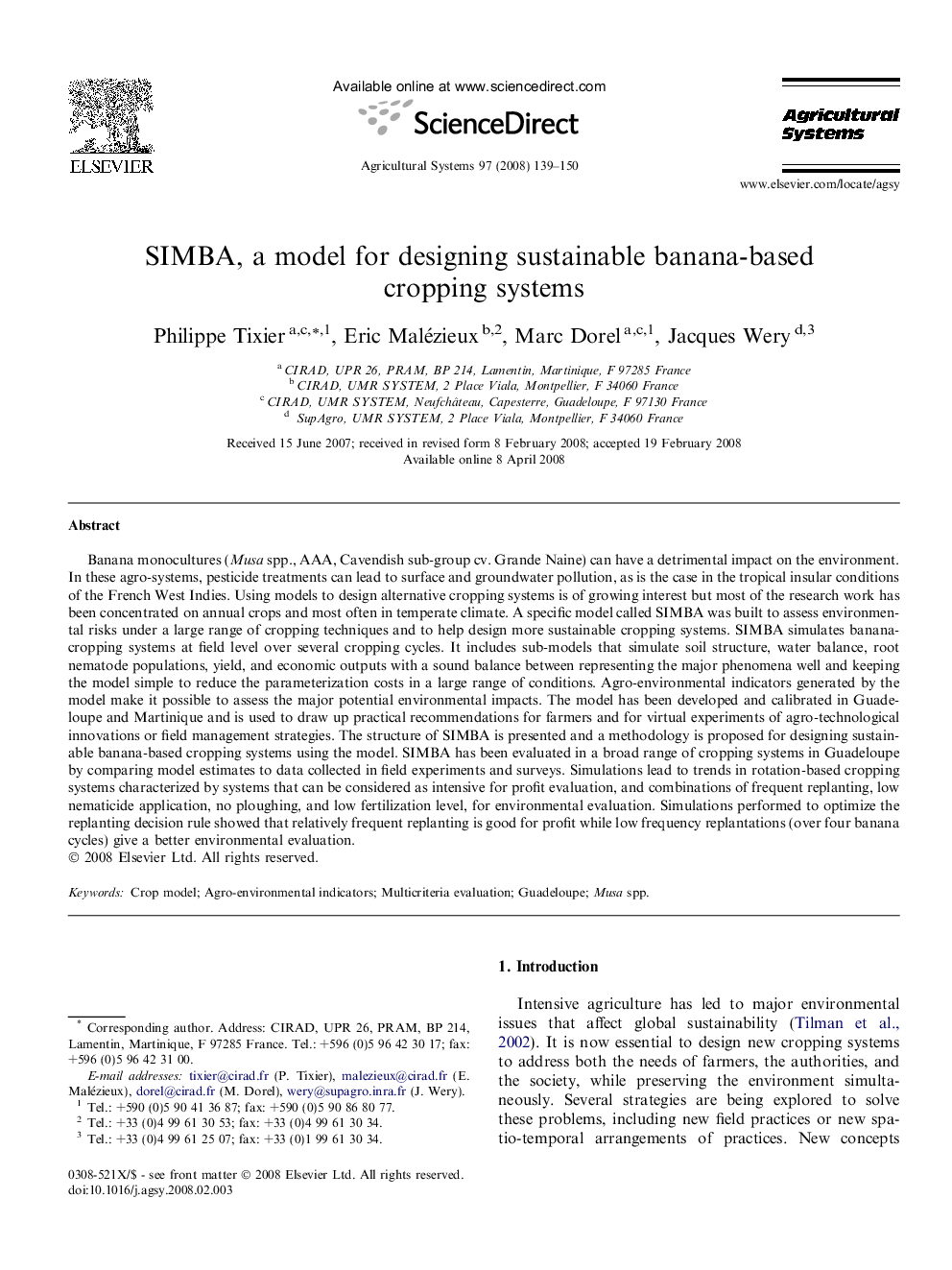| کد مقاله | کد نشریه | سال انتشار | مقاله انگلیسی | نسخه تمام متن |
|---|---|---|---|---|
| 4491832 | 1317883 | 2008 | 12 صفحه PDF | دانلود رایگان |

Banana monocultures (Musa spp., AAA, Cavendish sub-group cv. Grande Naine) can have a detrimental impact on the environment. In these agro-systems, pesticide treatments can lead to surface and groundwater pollution, as is the case in the tropical insular conditions of the French West Indies. Using models to design alternative cropping systems is of growing interest but most of the research work has been concentrated on annual crops and most often in temperate climate. A specific model called SIMBA was built to assess environmental risks under a large range of cropping techniques and to help design more sustainable cropping systems. SIMBA simulates banana-cropping systems at field level over several cropping cycles. It includes sub-models that simulate soil structure, water balance, root nematode populations, yield, and economic outputs with a sound balance between representing the major phenomena well and keeping the model simple to reduce the parameterization costs in a large range of conditions. Agro-environmental indicators generated by the model make it possible to assess the major potential environmental impacts. The model has been developed and calibrated in Guadeloupe and Martinique and is used to draw up practical recommendations for farmers and for virtual experiments of agro-technological innovations or field management strategies. The structure of SIMBA is presented and a methodology is proposed for designing sustainable banana-based cropping systems using the model. SIMBA has been evaluated in a broad range of cropping systems in Guadeloupe by comparing model estimates to data collected in field experiments and surveys. Simulations lead to trends in rotation-based cropping systems characterized by systems that can be considered as intensive for profit evaluation, and combinations of frequent replanting, low nematicide application, no ploughing, and low fertilization level, for environmental evaluation. Simulations performed to optimize the replanting decision rule showed that relatively frequent replanting is good for profit while low frequency replantations (over four banana cycles) give a better environmental evaluation.
Journal: Agricultural Systems - Volume 97, Issue 3, June 2008, Pages 139–150